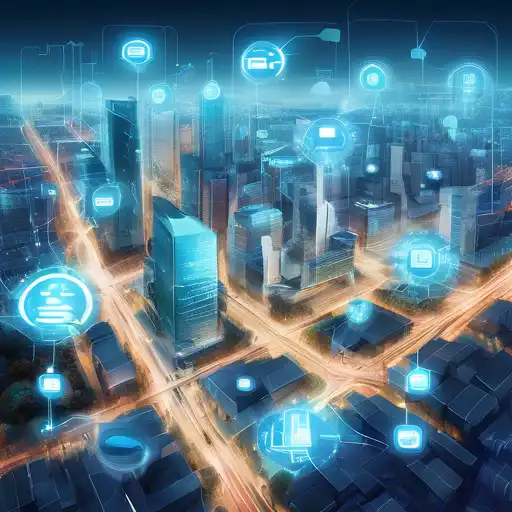Introduction to IoT in Smart Cities
The Internet of Things (IoT) is revolutionizing the way urban areas operate, making cities smarter, more efficient, and more sustainable. By connecting devices, vehicles, and infrastructure to the internet, IoT enables real-time data collection and analysis, leading to improved decision-making and quality of life for residents.
Key Benefits of IoT in Smart Cities
IoT technology offers numerous advantages for smart cities, including:
- Enhanced public safety through smart surveillance and emergency response systems
- Improved traffic management and reduced congestion with smart traffic lights and parking solutions
- Energy efficiency and sustainability via smart grids and renewable energy sources
- Better waste management through smart bins and recycling programs
Challenges and Solutions
Despite its benefits, implementing IoT in smart cities comes with challenges such as data privacy concerns, high implementation costs, and the need for robust cybersecurity measures. However, solutions like encryption, public-private partnerships, and community engagement can help overcome these obstacles.
Future Prospects
The future of IoT in smart cities looks promising, with advancements in AI and machine learning further enhancing IoT applications. From autonomous vehicles to smart healthcare, the potential for innovation is limitless.
Conclusion
IoT is a cornerstone of smart city development, offering solutions to urban challenges while paving the way for a more connected and sustainable future. As technology evolves, so too will the capabilities of smart cities, making IoT an indispensable tool in urban planning and management.
For more insights into how technology is shaping our world, explore our technology trends section.
